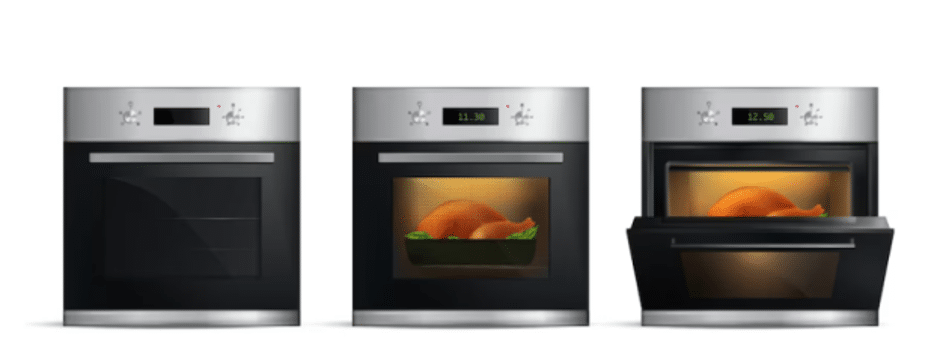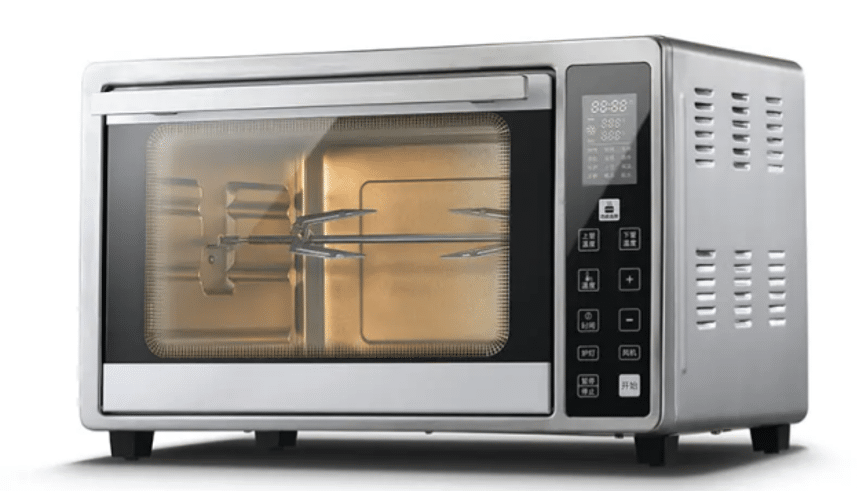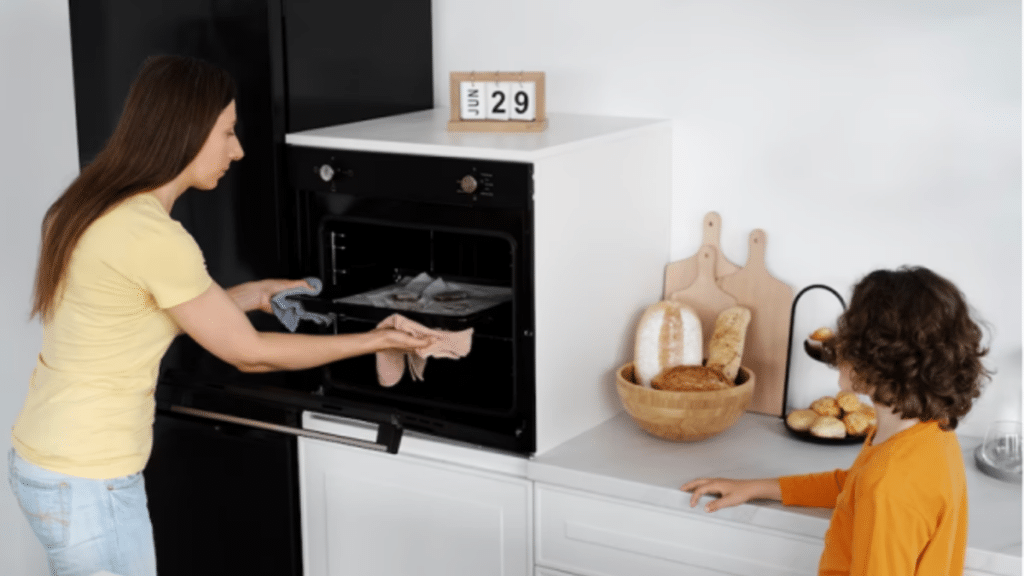When buying ovens, the most fundamental decision you have to make is whether to choose gas or electric ovens. Gas and electric ovens are commonly used and have specific advantages and disadvantages. To make an educated decision, learning the differences between the two options is important. This guide explores gas ovens vs. electric ovens so you can choose the right solution.
Gas and Electric Ovens – Overview
Before exploring the gas oven vs. electric oven comparison, defining the two types is important. A gas oven, as the name suggests, is an oven that runs on propane or natural gas. It provides heat to the food via its burners fueled by these resources. Gas ovens feature open flames to produce heat from the bottom, which pools at the top after passing through the cavity.
An electric oven, on the other hand, operates on electricity. It also uses radiation to heat the food but doesn’t feature any burners inside. Electric ovens also don’t have a flame. Instead, they transfer electricity into heat energy via heating elements or electric coils. Most modern electric ovens feature a fan to circulate the air in the oven for even heat distribution.
Comparison: Gas Oven Vs. Electric Oven
Now that you understand what gas and electric ovens are and how they operate, it’s time to compare them. Following are the key factors that highlight the differences when it comes to gas ovens vs. electric ovens:
1. Performance
An oven’s performance is measured by four key factors: heat, temperature, humidity, and ease of cleaning.
· Heat:
The main contrasting factor between gas ovens and electric ovens lies in the way they generate heat. Gas ovens use burner ignition to produce a very intense heat, enabling them to heat up rapidly. Conversely, electric ovens have heating elements or coils that take longer to heat up, and hence, they require more time to reach their optimal temperature. It’s worth noting that while gas ovens are quicker to heat up, they often do not distribute heat evenly compared to electric ovens.
· Temperature:
Gas ovens can reach higher cooking temperatures fast. But they tend to have hot spots. Electric ovens are more precise in temperature and allow for more even cooking because they don’t rely on burner ignition as their heat source. The temperature is also easier to maintain on electric ovens.
· Humidity:
Humidity/moisture release is another performance difference in gas ovens vs. electric ovens. Gas ovens give off moist heat, which makes them ideal for dishes like juicy meats. On the other hand, electric ovens produce drier heat which is perfect for broiling or adding crunch or crispness to your food.
· Easy to Clean:
Electric ovens generally feature a wide design with hidden heating elements/coils which makes these appliances easier to clean than gas ovens that feature ignitors with holes for open flame.

(Copyright photo from https://www.freepik.com/free-vector/set-realistic-kitchen-with-food-inside-open-door-white-isolated_6867570.htm#query=Electric%20Ovens&position=17&from_view=search&track=ais)
2. Energy Efficiency
As stated by the American Council for an Energy-Efficient Economy (ACEEE), 74% of the consumed energy is transferred to the food being cooked in electric ovens. In contrast, only 40% of the energy is transferred in gas ovens. Electric ovens waste less energy and are more environmentally friendly than gas ovens.
3. Cost
Typically, the initial cost of buying gas vs. electric ovens is similar, but electric ovens may be slightly less expensive. However, how much electricity an electric oven use is determined by various factors such as how often you use the oven, how high you set the temperature, and the electricity rates in your locality.
4. Safety
Electric ovens are generally considered to be a safer option than gas ovens. This is not to say that gas ovens are inherently dangerous, but they do carry an increased risk due to the potential for gas leaks. Additionally, gas ovens require a gas line to be installed in the home, which can pose a risk if there are any problems with the installation. On the other hand, electric ovens do not require gas lines and are powered solely by electricity, making them a safer and more convenient option.
Gas Oven Vs. Electric Oven: Which Is Better?
When determining which is better, gas ovens vs. electric ovens, it depends on the preferences and needs of the individual consumer. Gas ovens offer faster preheating times and precise temperature control, which is beneficial for tasks such as broiling and baking. However, electric ovens are often considered more convenient, safer, and energy efficient than gas ovens. In terms of popularity, electric ovens seem to be more popular among consumers. This could be because electric ovens are generally considered easier to use and maintain, with a wider range of features and settings that can be adapted to different cooking needs.
For tips about getting trendy electric ovens, please read Electric Ovens 2023: Top 3 Must-Have Types Worth Your Purchase.

Where to Get the Best Electric Ovens
There are many key differences between gas ovens vs. electric ovens, but the important thing to note is that both types have their specific pros and cons. Be sure to buy from a reputed brand, no matter which option you choose. Weijin Electric is a top electric oven manufacturer of feature-rich electric ovens and the best ovens for baking that come in all sizes and designs. With industry-leading specs and innovative products, Weijin Electric offers customized ODM/OEM services, excellent after-sale support, and reasonable pricing. For all your baking needs, consider Weijin Electric – contact them today for more information!

